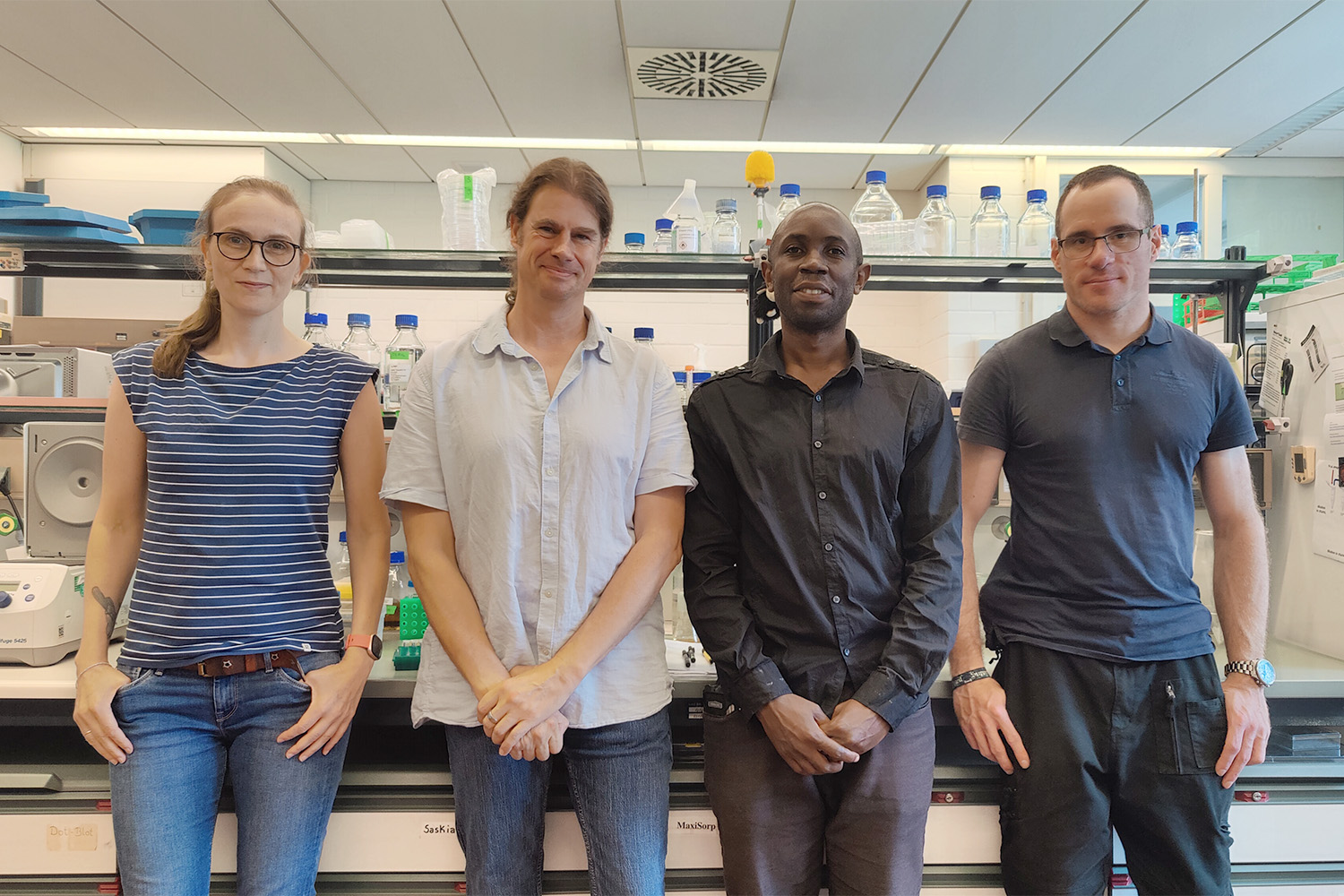Searching for a vaccine against East Coast fever Ugandan guest scientist visits the Department of Medical Biotechnology
Dr Charles Ndawula from the National Livestock Resources Research Institute in Entebbe, Uganda, is spending two months at the Department of Medical Biotechnology. Here he will continue his research into the development of vaccines against East Coast Fever, a cattle disease.

Saskia Polten, Michael Hust, Charles Ndawula and Philip Heine. Photo Credit: Institute of Biochemistry, Biotechnology and Bioinformatics/TU Braunschweig
Dr Ndawula studied biochemistry and chemistry at Makerere University (Uganda) and, after completing his bachelor’s degree, obtained a master’s degree in biochemistry and molecular biology from Jiangan University (China). His PhD at the Federal University of Rio Grande do Sul (Brazil) focused on the development of anti-tick vaccines. As a group leader at the National Livestock Resources Research Institute in Entebbe, Uganda, he was awarded a research fellowship in 2023 under the prestigious ARISE programme of the African Academy of Sciences. Michael Hust from the Department of Medical Biotechnology was also involved in this application.
East Coast Fever is a disease that affects livestock such as cattle, goats and sheep and causes significant economic damage to agriculture. The disease is caused by the parasite Theileria parva and is transmitted between animals by ticks of the species Rhipicephalus appendiculatus. Dr Ndawula’s research project aims to develop new vaccines against the disease.
He is taking two different approaches. The first is to identify proteins in the saliva of ticks that are recognised by the immune system of cattle in order to develop a vaccine against the disease vector, the tick. Norden Vaccines GmbH, a spin-off from TU Braunschweig, is pursuing a similar approach in the field of human medicine. The second approach is to identify proteins of the parasite that are recognised by the immune system. These will then be used to develop a vaccine.
“I am delighted that Dr Charles Ndawula from Uganda is visiting us. He is working on tick gene libraries at TU Braunschweig,” says Professor Michael Hust. Michael Hust and Philip Heine from the Department of Medical Biotechnology will then work with Dr Ndawula’s team at the National Livestock Resources Research Institute on the next steps in this research project. The project, which aims to find a vaccine candidate against East Coast Fever, will run until 2027.
